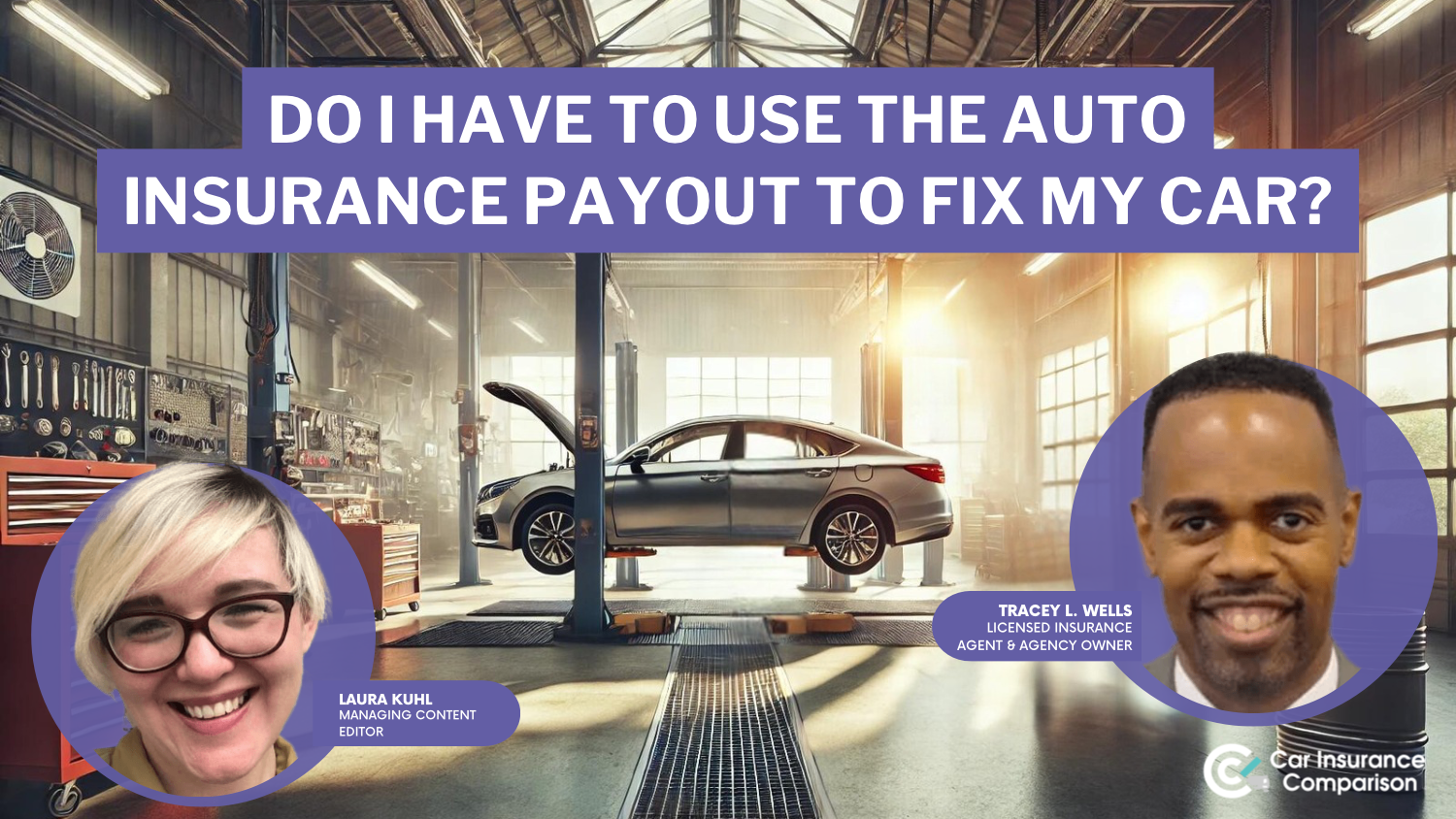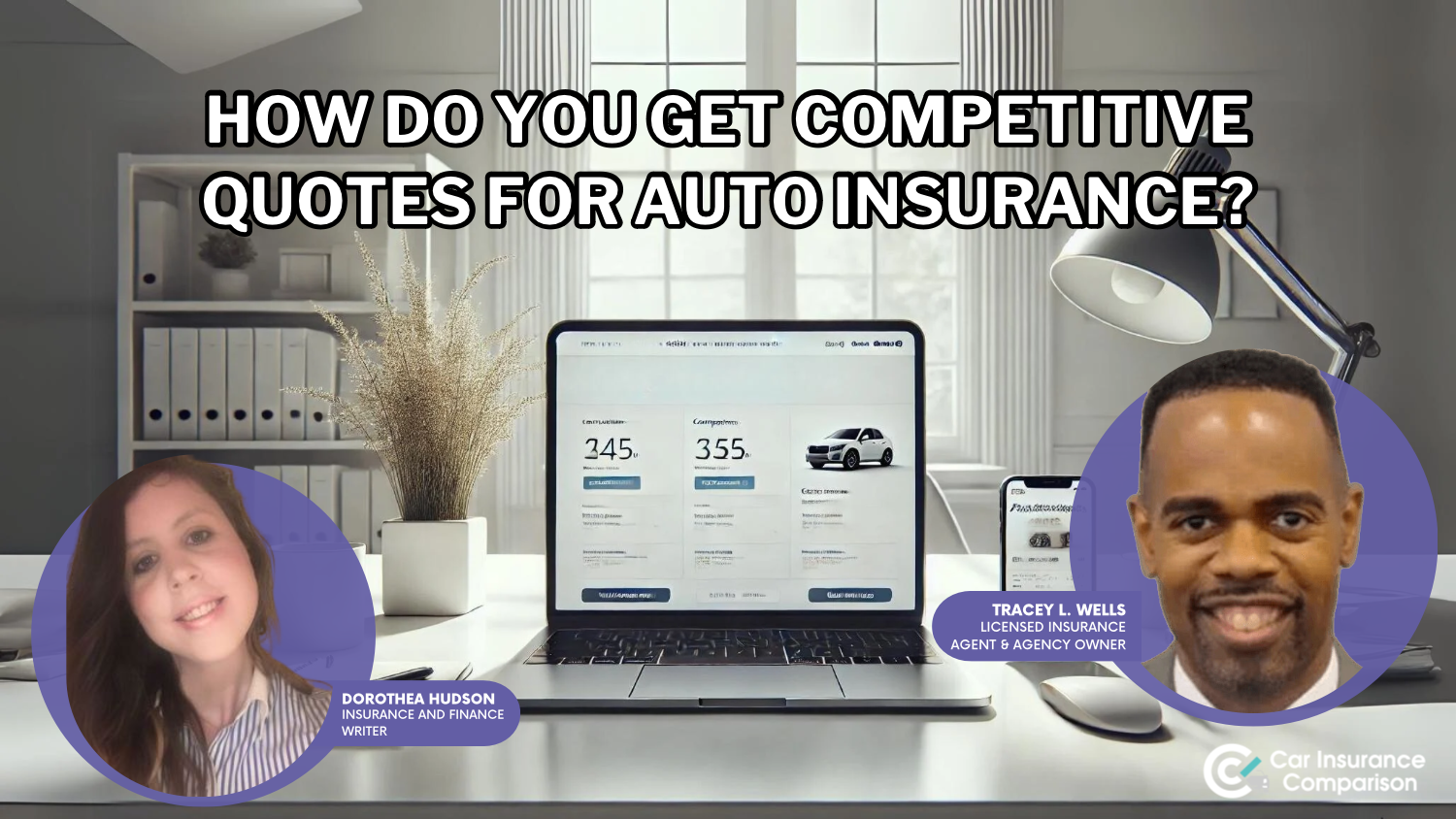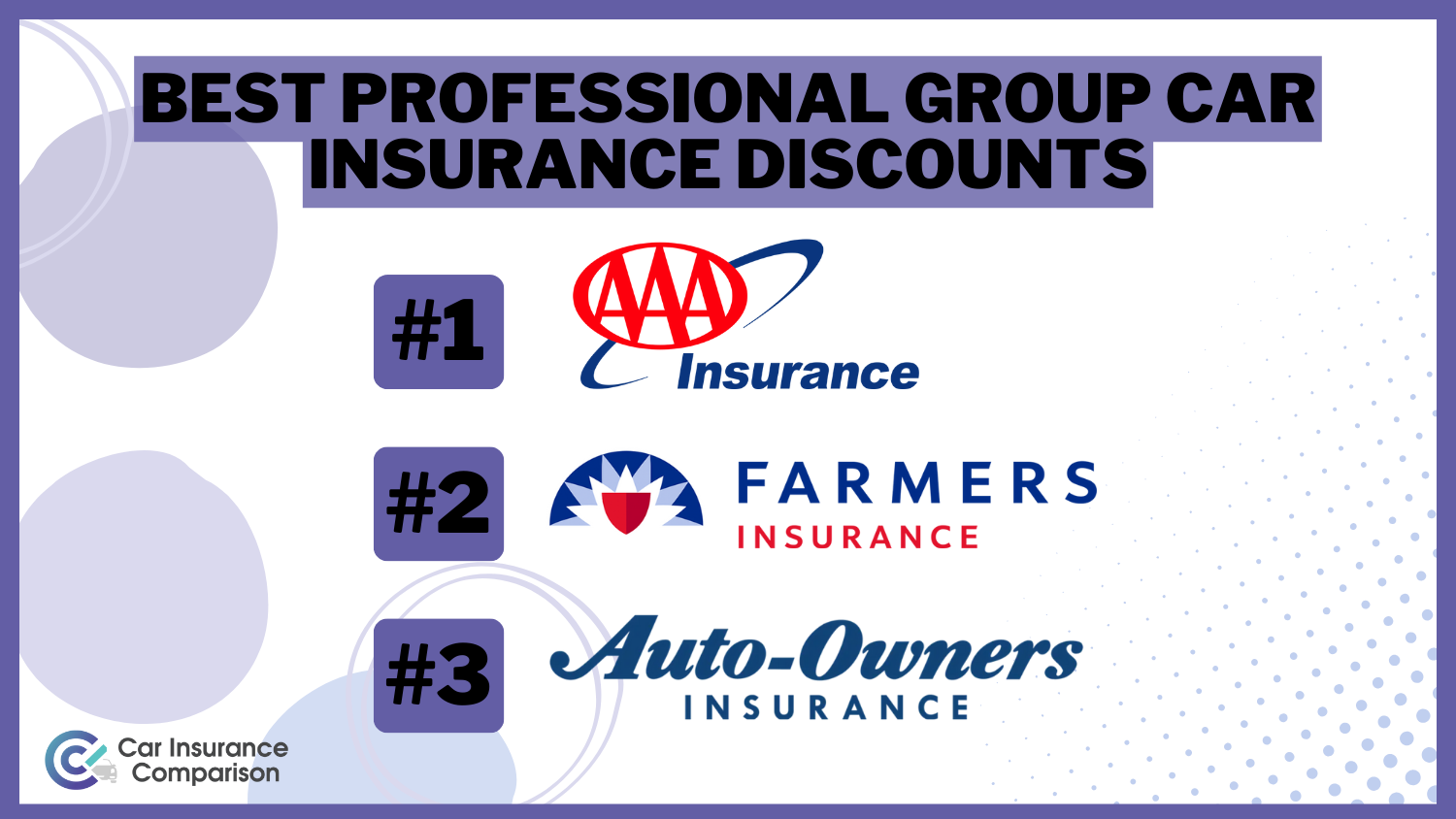Do I have to use the car insurance payout to fix my car?
You aren't required to use your car insurance reimbursement check for damages unless you are at-fault for the accident. But using your car insurance reimbursement check for anything else besides repairs could affect your car insurance rates. Insurance companies keep track of every claim you make, so it's in your best interest to compare car insurance quotes online if your switching providers after an insurance claim.
Read more Secured with SHA-256 Encryption





Table of Contents
Table of Contents


Insurance Content Team Lead
Laura Kuhl holds a Master’s Degree in Professional Writing from the University of North Carolina at Wilmington. Her career began in healthcare and wellness, creating lifestyle content for doctors, dentists, and other healthcare and holistic professionals. In 2018, she started writing for the cannabis industry. She curated news articles and insider interviews with investors and small business own...
Laura Kuhl


Licensed Insurance Agent & Agency Owner
Tracey L. Wells is a licensed insurance agent and Farmers insurance agency owner with 23 years of experience. He is proud to be a local Farmers agent serving Grayson, Georgia and surrounding areas. With experience as both an underwriter and agent, he provides his customers with insight that others agents may not have. His agency offers all lines of insurance including home, life, auto, RV, busi...
Tracey L. Wells
Updated October 2024
If your car is damaged in a way that is covered by insurance, such as through liability or collision coverage from an accident or comprehensive coverage following a hail storm, you will be reimbursed by the insurance company for loss within the limits set by the policy.
Once your deductible is paid out, the insurance company will cover the difference either by paying the auto repair center directly or by issuing you a check.
If you get a check from the car insurance company, you do not necessarily have to get your car fixed with those funds.
There are several reasons why you may want to consider cashing the check and not repairing your car, although there are also good reasons for fixing your car.
Provided the car insurance company does not set forth any conditions, the decision to repair your vehicle is ultimately yours.
Read more:
- Can I pay for repairs without going through my car insurance?
- Do I have to repair my car with the insurance money?
If you want to compare quotes on coverage from many different companies, use our FREE tool above!
- You do not have to spend your reimbursement check on fixing your vehicle
- After an accident, file a police report right away
- Contact your insurance company after an accident, even when you are not at fault. They will advocate for you
To Fix or Not to Fix your Car
The first decision you always need to make when your vehicle is damaged is whether or not you want to make a claim with your insurance company.
If you are in an accident that involves another party, you should file a police report and notify your insurance company immediately.
Also, if your car is owned by a bank or leasing company then you must report the damages right away. However, there may be times when you first want to consider the out-of-pocket cost of your deductible versus how much cost the total repairs will be.
If your car is damaged by hail and you have a $500 deductible and the cost of the repairs will be a total of $600, it may not be worth the $100 for you to file a claim with your insurance company, especially if there is a risk of your premiums going up as a result of the claim.
Premiums do not usually increase as a result of a single claim, but you may want to consider the long-term effects of cumulative claims over the savings of minor expenses.
Another reason you may decide not to fix your car is the age and condition of the car at the time the damage took place. If the car is already rusting you may not mind a few cosmetic flaws such as dents from hail.
If you are getting ready to sell your car, you may decide not to fix your car because you may not see a return on the investment.
For example, if your car is going to cost $2,000 to fix but will only increase your sale by $1,500 there is no cost benefit to fixing the car.
If you are uncertain, you should get an estimate for the repair and find out how much you will get for your car both before and after the damages are fixed. This will help you determine the value of fixing your car.
Free Insurance Comparison
Compare Quotes From Top Companies and Save
Secured with SHA-256 Encryption
The Cost of the Car Insurance Deductible
Regardless of whether or not you fix your car, remember that when your car insurance company issues you a check it will be for the difference between your deductible and the estimated amount of the repairs.
If your car is estimated to cost $750 to restore it to its previous condition and you have a $500 deductible, then you will only receive a check for $250.
The deductible does not apply if the damages to your car are covered by someone else’s insurance. In that case, you should receive the full amount that is estimated for the repairs.
Submitting an Car Insurance Claim
If your car is damaged, you need to quickly determine whether or not you are going to file a claim with your insurance company.
Time is always of the essence when dealing with matters of insurance and if you wait to file a claim beyond the time stated in your policy you risk losing rights to your coverage for that particular incident.
Filing a claim is quite simple, although it may require a police report as well. Call your agent for claim instructions if you do not know the procedure.
Some insurance companies allow you to file a claim by the internet or the phone as well as in person at your agent’s office. It is a good idea to keep your insurance information and claim instructions in your car at all times.
Always go through your own insurance company, even if your car was damaged by someone else.
Most car insurance companies will initiate the claim process with the other insurance company for you, mitigating your stress for no charge.
They will be sure that you receive fair compensation for the damages incurred and also, they will follow up to be sure you received payment or that your car was fixed accordingly.
Filing a Claim With Another Driver’s Insurance Company
According to New Jersey state regulations, drivers in that state have a choice of filing first-party or third-party claims to cover vehicle damage.
The first-party claim is one that requires your car insurance company to make payments up to the value stated in your policy.
A third-party claim requires the insurance company of another driver to cover your vehicle in proportion to the amount of fault assigned to their driver. More often than not third-party claims will not be sufficient to completely replace your vehicle.
Most other states have similar systems in place to collect payment from another driver’s insurance company.
The thing to note is that in states with no-fault insurance laws, it is not possible to go after another driver’s insurance company to pay for:
- Personal injuries
- Pain and suffering
- Emotional distress
Read more: Understanding Car Insurance Codes and Laws
No-fault states require each insurance company to cover their own drivers for these types of things. If you are concerned about the potential of personal injury, you may want to purchase extra insurance coverage.
Free Insurance Comparison
Compare Quotes From Top Companies and Save
Secured with SHA-256 Encryption
Comparing Car Insurance Companies
Whether you ever need to file a claim or not, you always need to have car insurance in the event you are in an accident or possibly some other damage occurs to your vehicle.
You can get FREE quotes now from top agents just by entering your ZIP code below to start the process. Get started finding the best car insurance today!
Case Studies: Utilizing Car Insurance Payouts for Vehicle Repairs
Case Study 1: Liability Coverage
John was involved in a car accident where he rear-ended another vehicle. The accident was determined to be John’s fault, and the other driver’s car sustained significant damages. Fortunately, John had liability coverage as part of his car insurance policy. His insurance company accepted the liability and agreed to cover the damages to the other driver’s car.
In this case, the car insurance payout from John’s liability coverage would be used to repair the other driver’s car. John would not have to use his own insurance payout to fix his own vehicle since liability coverage only applies to damages caused to others in accidents where the policyholder is at fault.
Case Study 2: Collision Coverage
Sarah was driving her car when she collided with a pole due to icy road conditions. The collision resulted in extensive damage to Sarah’s vehicle. Luckily, she had collision coverage as part of her car insurance policy. She filed a claim with her insurance company, and after paying the deductible, she received a car insurance payout for the repairs.
In this case, Sarah used her car insurance payout from collision coverage to fix her own vehicle. Collision coverage is designed to cover damages caused to the insured vehicle, regardless of fault. Sarah had to utilize the insurance payout to restore her car to its previous condition.
Case Study 3: Comprehensive Coverage
Mark parked his car on the street overnight, and the next morning he discovered that a tree limb had fallen on it during a storm. The tree limb caused significant damage to Mark’s car, including a broken windshield and dented roof.
Fortunately, Mark had comprehensive coverage as part of his car insurance policy. He filed a claim with his insurance company, paid the deductible, and received a car insurance payout for the repairs.
In this case, Mark used his car insurance payout from comprehensive coverage to fix his car. Comprehensive coverage protects against damages caused by non-collision events, such as storms, vandalism, or theft. Mark’s insurance payout allowed him to repair the damages caused by the fallen tree limb.

Frequently Asked Questions
Do I have to use the car insurance payout to fix my car?
You aren’t required to use your car insurance reimbursement check for damages unless you are at-fault for the accident. But using your car insurance reimbursement check for anything else besides repairs could affect your car insurance rates. Insurance companies keep track of every claim you make, so it’s in your best interest to compare car insurance quotes online if you’re switching providers after an insurance claim.
What factors should I consider when deciding whether to fix my car or not?
When deciding whether to fix your car or not, you should consider factors such as the out-of-pocket cost of your deductible, the total cost of repairs, the age and condition of the car, and whether you plan to sell the car in the near future. Getting estimates for the repairs and evaluating the value of your car before and after the damages are fixed can help you make an informed decision.
How does the car insurance deductible affect the reimbursement check?
The reimbursement check issued by your car insurance company will be for the difference between your deductible and the estimated amount of repairs. For example, if your car is estimated to cost $750 to repair and you have a $500 deductible, you will receive a check for $250. However, if the damages are covered by someone else’s insurance, you should receive the full estimated amount for repairs without deducting your deductible.
How do I file a car insurance claim?
If your car is damaged, you should promptly determine whether you want to file a claim with your insurance company. Time is crucial, as delaying the claim beyond the time specified in your policy may result in losing coverage for that particular incident. You can file a claim by contacting your agent, either in person, over the phone, or online. It’s advisable to keep your insurance information and claim instructions in your car at all times for easy access.
Can I file a claim with another driver’s insurance company?
In states where no-fault insurance laws exist, it’s not possible to go after another driver’s insurance company for vehicle damages. Each insurance company covers their own drivers in such cases. However, in other states, you may have the option to file a third-party claim with another driver’s insurance company, which requires the insurance company of the at-fault driver to cover the damages proportionate to their assigned fault.
Get a FREE Quote in Minutes
Insurance rates change constantly — we help you stay ahead by making it easy to compare top options and save.






